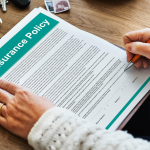Professional liability is a form of insurance that protects professionals such as accountants, lawyers, architects, engineers, etc., against legal liabilities arising from their professional services. This coverage is designed to cover claims of negligence or malpractice that result in financial loss, injury, or damage to clients or third parties.
Key Features of Professional Liability Insurance:
- Coverage for Negligence: Protects against claims alleging that a professional made a mistake or was negligent in delivering services.
- Defense Costs: Covers legal fees associated with defending against a claim, regardless of the outcome.
- Claims-Made Policy: Typically, professional liability policies are claims-made, meaning they only cover claims made during the policy period.
- Damages: Provides payment to the third party that the professional is legally obligated to pay as a result of a covered claim.
- Policy Limits: There are typically two limits: per claim and aggregate for all claims within the policy period.
Who Needs Professional Liability Insurance?
Professionals who provide services, advice, or consulting could potentially need this insurance. It includes but is not limited to:
- Legal professionals
- Healthcare providers
- Architects and engineers
- Accountants and financial advisors
- Consultants
- Real estate agents
- Technology professionals
Understanding the Policy:
- Exclusions: Not all situations are covered. Policies often exclude criminal prosecution and certain civil liabilities.
- Retroactive Date: Any claims stemming from acts before this date generally aren’t covered.
- Extended Reporting Period (ERP): Allows for the reporting of claims after a policy has expired for events that occurred during the policy period.
- Deductibles: The amount the insured must pay out-of-pocket before the insurer pays a claim.
Risk Management:
Professionals can reduce their liability risk by:
- Maintaining clear and thorough records of all interactions and communications with clients.
- Getting written contracts that outline the scope of work.
- Staying within the bounds of their professional expertise and not giving advice or services outside their area of competence.
- Continually updating their skills and knowledge to stay current in their profession.
Claims Process:
If a claim is made against a professional, the insurer should be notified immediately. The insurer will then evaluate the claim and, if it falls within the coverage of the policy, will provide defense and cover damages up to the policy limits.
Choosing the Right Insurance:
When selecting professional liability insurance, consider:
- Industry-Specific Coverage: Some professions have specialized policies tailored to their specific risks.
- Limits of Liability: Ensure the limits reflect the potential risk exposure.
- Reputation and Financial Strength of the Insurer: Choose a company with a strong track record and financial stability.
- Cost: Premiums vary based on the profession, risk exposure, claims history, and coverage limits.
Conclusion:
Professional liability insurance is a critical component for any professional or firm that provides services or advice. It not only offers financial protection but also peace of mind, allowing professionals to focus on delivering their expertise without the fear of litigation hanging over their heads. Regularly reviewing and updating insurance coverage ensures that it remains aligned with the evolving nature of the professional’s business and associated risks.







